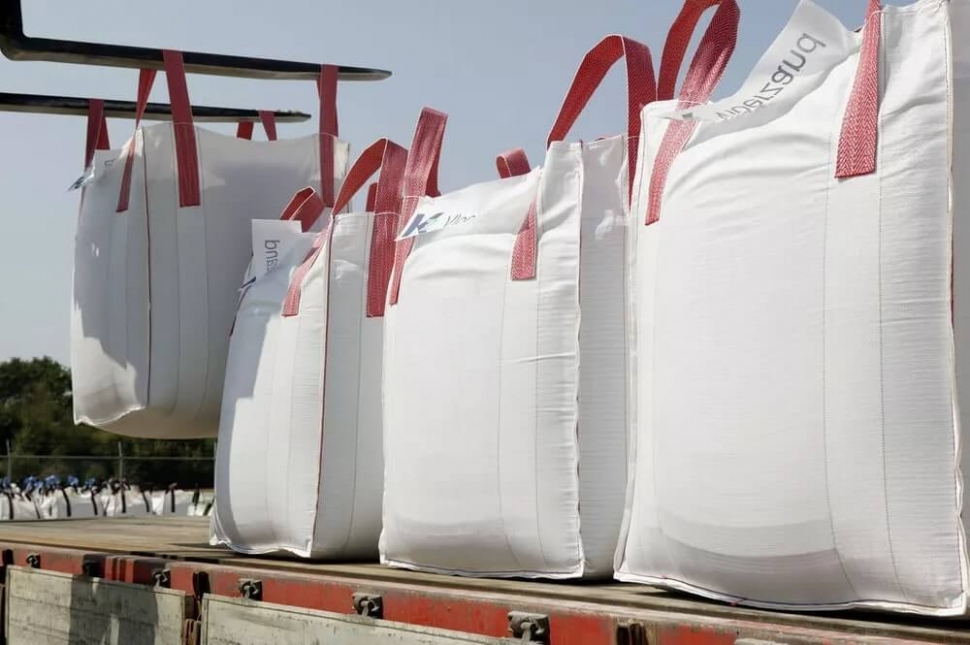FIBC bags, also called jumbo bags or bulk bags, are an absolute game-changer when it comes to storing and transporting bulk materials. Whether you’re in agriculture, chemicals, construction or food processing, choosing the right FIBC bag makes a huge difference in your product quality, cost-effectiveness, and operational ease.
In India, the demand for these bags is booming. In fact, India is one of the top exporters of FIBC bags globally, with over $600 million worth of exports in 2023 alone. With so many options and suppliers, it’s essential to know exactly what to look for.
Let’s walk you through how to choose the right FIBC bag for your industry, in simple terms.
1. Understanding Different Types of FIBC Bags
There are mainly four types of FIBC bags, each suitable for different needs:
- Type A: These are basic, no-frills bags with no static protection. Good for non-flammable products in a non-explosive environment.
- Type B: Similar to Type A but with some resistance to low breakdown voltage. Still not suitable for flammable materials.
- Type C: Made with conductive threads that must be grounded. Best for explosive or flammable environments like chemical and paint industries.
- Type D: Dissipative bags that don’t require grounding. Safe for flammable environments.
If you are dealing with powders, chemicals, or flammable products, Type C or D is a must.
2. Industry-Specific FIBC Bag Selection Guide
a) Agriculture & Fertilizer Industry
India’s agri-export is growing, and FIBC bags are widely used for grains, pulses, and fertilizers. Look for:
- UV stabilized bags (especially for outdoor storage)
- Moisture-proof liners
- 1-ton capacity bags
b) Construction Industry
If you’re handling sand, gravel or cement, go for:
- Heavy-duty fabric (160 GSM and above)
- Cross-corner loop design for crane handling
- Coated bags to prevent leakage
c) Chemicals & Pharma
Hazardous goods need strict safety:
- Type C or D bags
- UN-certified bags
- PE liners for leak-proofing
d) Food & Grains Industry
For food-grade products:
- Bags with BRC/ISO certifications
- Manufactured in clean room conditions
- Lamination or liner as per product moisture levels
e) Textile & Recycling Industry
For lightweight materials like textiles or recyclables:
- Ventilated or breathable bags
- Larger volume (1.5-2 cubic meters)
- Lighter GSM fabric
3. Key Features to Consider
When talking to FIBC bags manufacturers in India or checking online, pay attention to:
- Safe Working Load (SWL): Choose bags with SWL between 500 kg to 2000 kg based on your product weight.
- Loop Design: Single loop, double loop, cross-corner, or corner loops – choose based on your lifting machinery.
- Filling & Discharge: Options like top spout, duffle top, discharge spout, or flat bottom are all available.
- Coated vs. Uncoated: For powders, coated bags help avoid leakage.
4. Environmental Conditions & Bag Requirements
India has extreme temperatures and humidity. Choose bags that are:
- UV protected for outdoor storage
- Anti-static if handling flammable goods
- Water-resistant for monsoon season
This is especially important if your warehouse isn’t climate-controlled.
- Customization Possibilities
FIBC bags suppliers in India offer full customization. You can choose:
- Size, GSM, loop position, discharge options
- Printing your company logo for brand visibility
- Colour-coded loops for easy identification (blue = food-grade, red = chemical-grade etc.)
6. Compliance & Quality Certifications
Always ask your supplier for:
- ISO, BIS, BRC, UN certifications
- Test reports for SWL and safety factors
- Food-grade compliance if applicable
India is a hub for certified FIBC production. Many top exporters are based in Gujarat, Maharashtra and Tamil Nadu.
7. Supplier Selection Tips in India
There are hundreds of FIBC bags suppliers in India, so here’s what to check:
- Production capacity: Ideal suppliers manufacture 50,000+ bags/month
- Lead time: Standard is 7–14 days
- Trial samples: Always ask for a sample before bulk order
- Clientele: Look for companies supplying to MNCs or exporters
Top cities to source from: Ahmedabad, Surat, Pune, Chennai, and Hyderabad.
8. Cost Factors
Pricing depends on:
- Fabric GSM (higher GSM = higher cost)
- Bag design (spouts, liners, loops)
- Order quantity (bulk = better price)
- Freight (local vs. national delivery)
Generally, FIBC bags range between INR 250 to INR 700 per piece in India depending on the specs.
9. Conclusion
Whether you’re into farming, building, exporting or food processing, choosing the right FIBC bag can save you money, avoid product loss, and even help build your brand.
Make sure to consult trusted FIBC bags manufacturers in India and never compromise on safety or certifications.
Need help finding verified FIBC bags suppliers? Drop your requirements and get the best quotes from India’s leading manufacturers.

